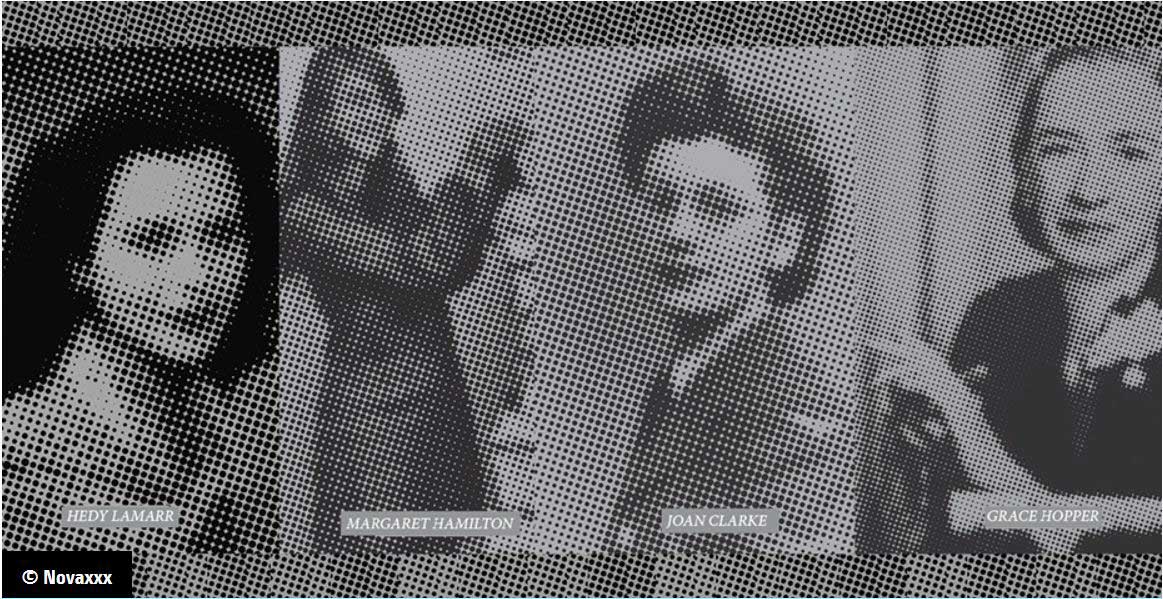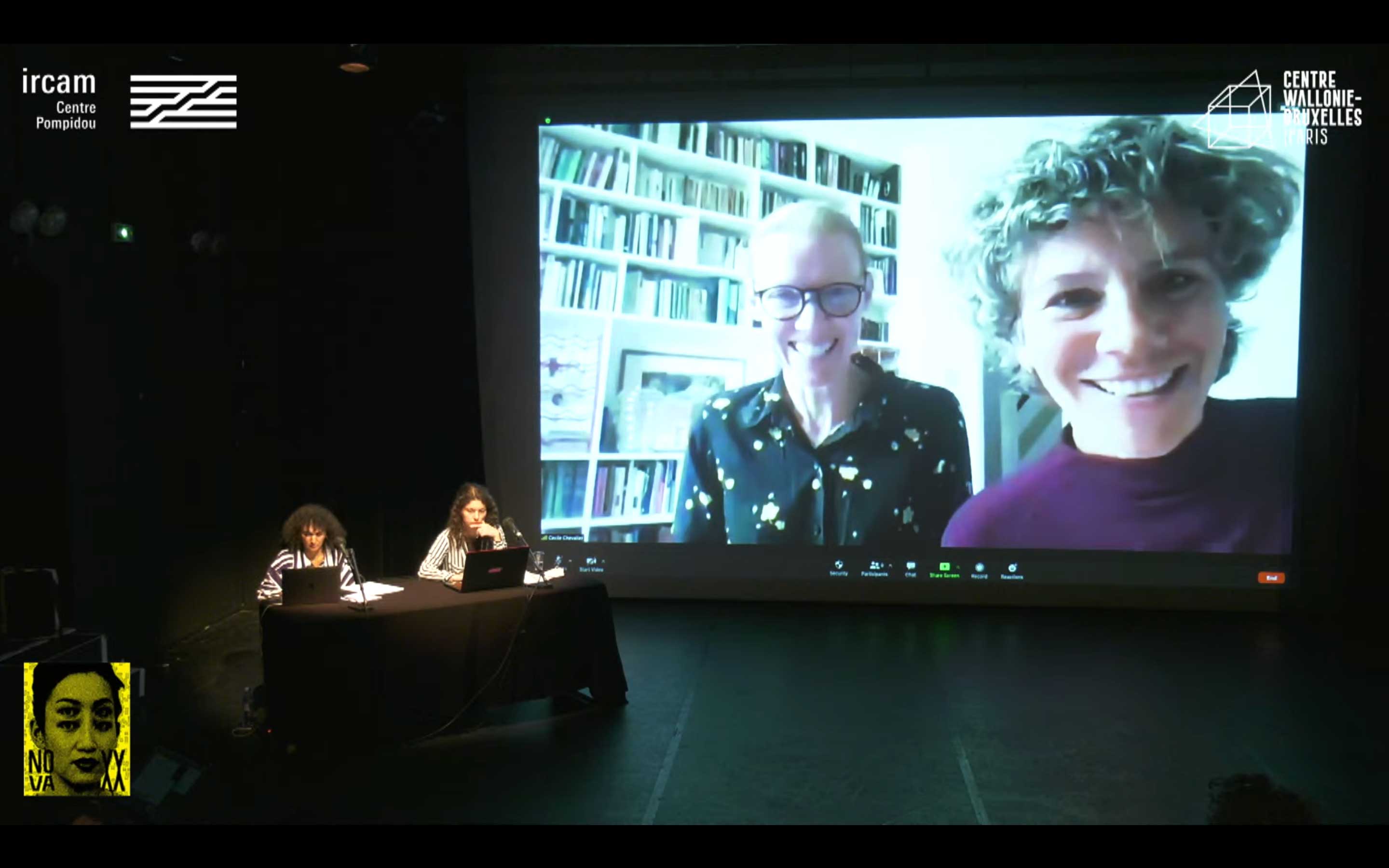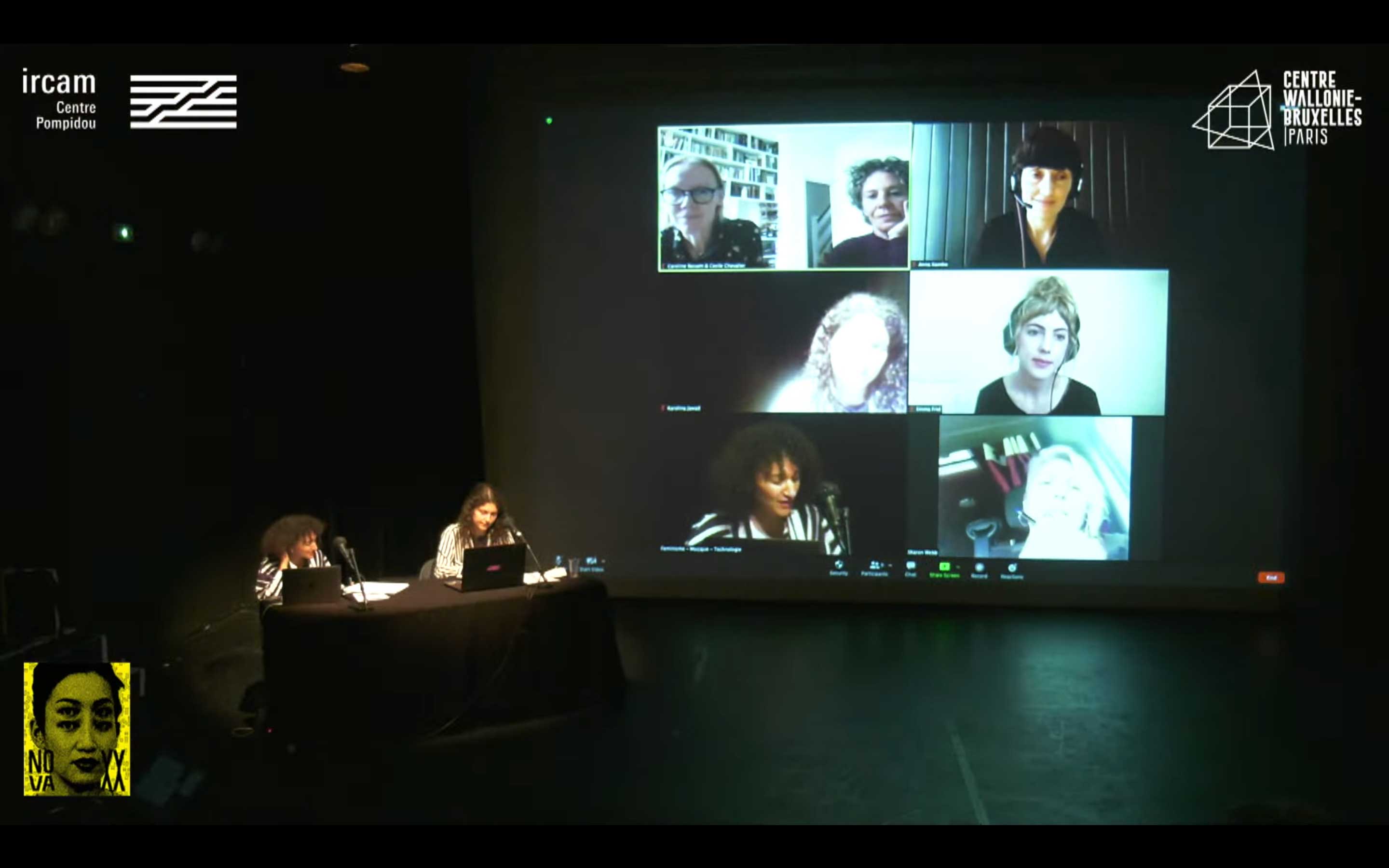Meeting up for the Féminisme - Musique - Technologie Conference 2021 in Paris
In this blog post I will report my experience as a WoNoMute delegate who had the opportunity to travel to Paris and represent the organisation at the event ‘Féminisme - Musique - Technologie’ which was part of the ManiFeste-2021 Festival in Paris.

In June 19 2021, the event ‘Féminisme - Musique - Technologie’ took place in Paris. As part of the ManiFeste-2021 Festival it was hosted by the Institut de Recherche et de Coordination Acoustique/Musique (IRCAM) in collaboration with Nova_XXX/ Centre Wallonie-Bruxelles. IRCAM is a public research centre dedicated to musical creation and scientific research in Paris which is entangled with the Centre Pompidou and Sorbonne Université. Commited to bring questions of intersectionality and inclusion in music, science and technology on the radar of the local research environments, Dr. Frédéric Bevilacqua, head researcher from the Sound Music Movement Interaction (ISMM) team at IRCAM and Dr. Sarah Fdili Alaoui, associate professor at Université Paris-Saclay invited us to join this mini-conference.
You can watch the full video of the event on the link below. The video starts with a thematic introduction by Sarah Fdili Alaoui (05:20) who introduces the presenters and concludes with and open discussion (1:15:00). In the second part the session continues in French.
The new hybrid
Due to current Covid19 restrictions slightly being lifted, and after having postponed the event for a year, I was the only international presenter who was able to participate on-site at the live event due to living in Berlin. For this session all other invited speakers who were based in the UK or Sweden (Prof. Caroline Basset, Dr. Cécile Chevalier, and Dr. Sharon Webb from IFTe, Dr. Emma Frid from KTH Royal Institute of Technology/IRCAM, and Dr. Anna Xambó from WoNoMute) could only have travelled under circumstancial conditions at that time. The public anyhow could attend the event on-site at Centre Wallonie-Bruxelles or via live stream and take part in the discussion either way. It was noticeable that people were used to stay at home, there were about ten people in the audience, yet the video has 600 views up to present.
The networks IFTe and FACT

With the title “Building Community; Materialising Voices; Coding & Decoding” Prof. Caroline Basset, lecturer at the University of Cambridge opened with the first presentation together with Dr. Cécile Chevalier, senior lecturer in Digital Practice and Dr. Sharon Webb, co-director of the Sussex Humanities Lab, both from the University of Sussex. They connected their focal perspectives in research, artistic practise and beyond to the agenda of the initiatives The Intersections, Feminism, Technology & Digital Humanities network (IFTe) and Feminist Approaches to Technology Network (FACT). Both networks address gender imbalance in computational practices. They introduced how transdisciplinary activities such as writing, creative coding and community building can become collaborative methods for feminist interventions. Caroline Basset for example stressed that through feminism it was possible to question if not counter the assumptions about gendered practises and spaces throughout history.
Sonification of Women Authorship
Dr. Emma Frid is a post-doctoral researcher at KTH, Royal Institute of Technology, Stockholm and at IRCAM from the Computational Shaping and Modeling of Musical Structures (COSMOS) project. In her presentation Frid demonstrated a general lack of women attendees in sound and music computing conferences. Frid collected the actual numbers of women authorship in the proceedings of The International Computer Music Conference (ICMC), The Sound and Music Computing Conference (SMC) and New Interfaces for Musical Expresion (NIME) over the course of several years tracked by their first names. In order to make the imbalance between male and female authorships more perceptible Frid used visual plots but also played several sonifications based on the datasets. Assigning these datasets different sounds one could perceive it quite vividly. This research is based on Frid’s paper Sonification of Women in Sound and Music Computing - The Sound of Female Authorship in ICMC, SMC and NIME Proceedings.
The WoNoMute Manifesto
Finally myself and Anna presented the WoNoMute network in a hybrid format, me onsite and Anna from Sheffield. We enfolded the WoNoMute-Manifesto together with a time line of all the activities, from the beginning in 2018 to the present. The main points of the manifesto are:
- to establish an international, local and national network of role models
- to encourage women, girls and non-binary to participate and develop skills in music technology related fields
- to revisit ontologies and epistemologies of the field so that everyone is welcome
The presentation can be found here.
Roundtable

After the three presentations, we had a follow-up discussion facilitated by Sarah Fdili Alaoui. Several interesting topics which the presenters issued were: (1) The gendering of technology and realms of activity. (2) Whether the intersection of humanities and technology is a way to integrate more underrepresented perspectives instead of “infiltrating” STEM (mathematics, computer science, natural sciences and technology) subjects through girls-only programmes and workshops (3) How does this imbalance manifest itself in music technology in its educational spaces or in the inhabiting objects? Further on, it was discussed that women in male-dominated spaces tend to thematize the gender imbalance while their work fades into the background.
Acknowledgements
Thanks especially to Frédéric Bevilacqua and Sarah Fdili Alaoui for their invitation and Sylvie Benoit for the opportunity to be physically present. It was also very interesting to learn about the activities of the ISMM team and to get to know some researchers at IRCAM in person while being able to discuss things on one table. Thanks also to Anna for the conversations and regular meetings to prepare our hybrid visit. I hope the dialogues will continue on each front.
